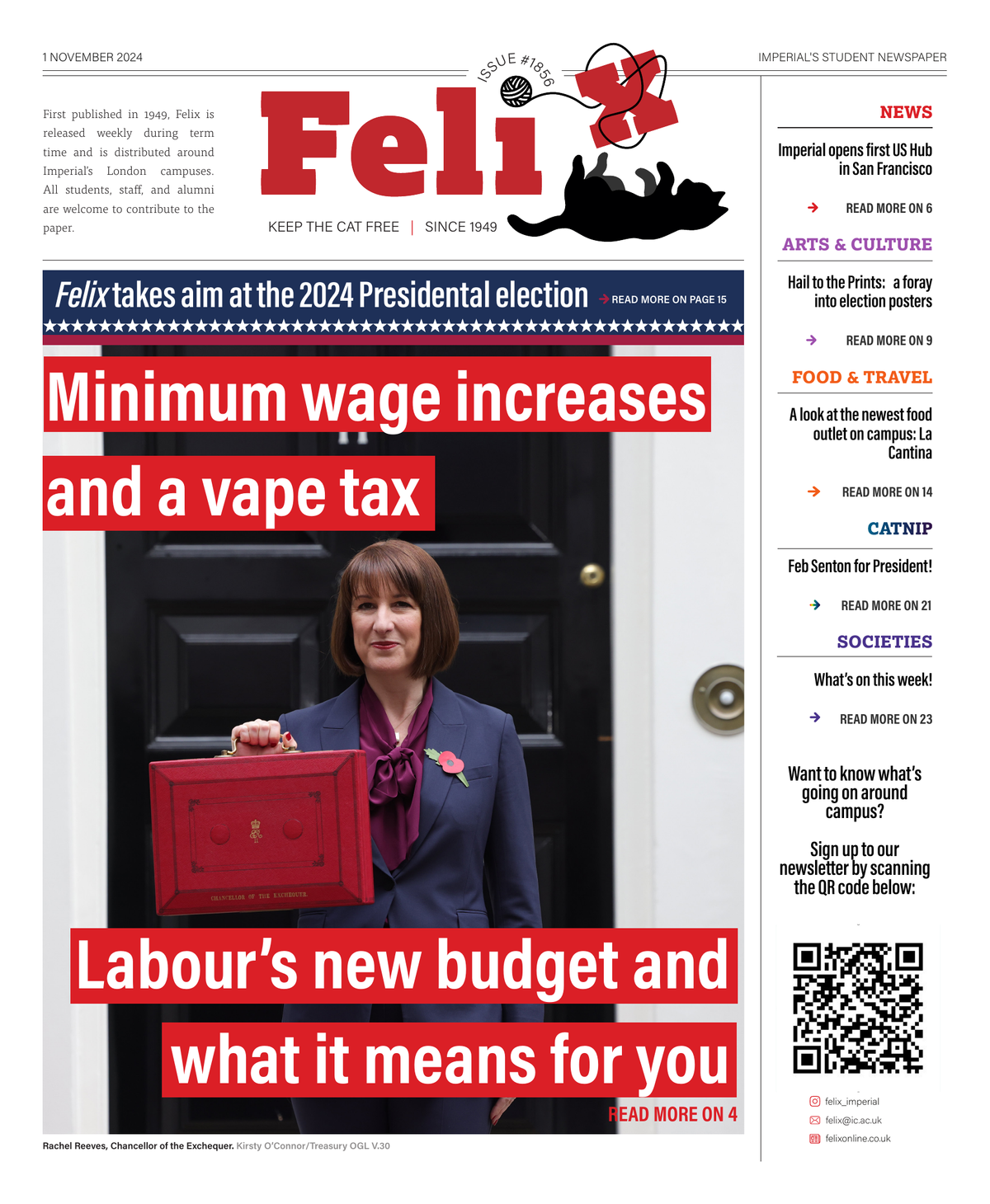Letter to the Editor: Student Loans
Dear Felix,
It is surprising the limited treatment UK student finance actually receives relative to its obvious importance. Seldom does the subject appear to merit explicit discussion except as a means toward the furtherance of polemics, a case in point being your recent editorial in Felix #1855. Contextually, the plethora of coverage as well as ongoing mainstream media focus – including quality newspaper commentary – tends to frame the UK student loan system in similar terms; redolent of high indebtedness, mounting interest and, by implication, something which is somehow unfair and unsportsmanlike. However, as the Nobel Laureate Richard Feynman pointed out many moons prior, “The first principle is that you must not fool yourself – and you are the easiest person to deceive.” For one thing, the student loan, though most probably equated to in many people’s minds, differs significantly from its US equivalent; it is neither predatory, nor exploitative, much less perennial because it is income-contingent. Graduates therefore have to earn, depending on the plan they are on, somewhere in the mid £20,000 range before triggering repayment, this means relatively few will be contributing much in their early years of employment. Those that do earn above the average salary will likely contribute a relatively modest amount with only the truly high earners (17% according to a 2023 IFS study) paying anything proportionate to the cost of the loan provided. Furthermore, the ‘loan’ itself lapses after 30 (recently increased to 40) years. Because of these considerations a recent article in the Times Higher Education by this author (16th Sept 2024) emphasises a better way to conceive of UK HE student finance is to view it as a tax rather than loan. Martin Lewis, the well-known financial journalist, has been arguing along similar lines on his MoneySavingExpert platform for many years now in an attempt to demystify the financial commitment and costs involved. In the wake of this, the question that really needs to be addressed is whether a student should contemplate attempting to pay back the loan in full, to which the answer is it’s complicated and depends on one’s earnings as well as the plan involved (although the YouTube channel Damien Talks Money gives an excellent and up-to-date summary of how to approach an answer without lapsing into hard core financial advice).
The deterrent effect of language in student finance not only skews its mainstream conceptualisation prejudicing the discussion thereafter, it also comes with another very unfortunate recently highlighted side effect (identified by the 2022 Muslim Census Survey which echoes previous findings from Challender & Mason’s 2017 peer reviewed article); it inadvertently discourages potential students from debt-averse backgrounds – comprising working and middle class British people who are not financial savvy as well as many practicing Muslims who refuse to deal with loans that incur interest which they believe is prohibited to them. In the latter case, this amounts to around 120,000 potential undergraduates over the past 10 years, including 6,000 per year who avoid university education altogether, together with another 6,000 per year who refuse the maintenance loan exposing them to considerable hardship thereafter. Admittedly, it appears the majority of suitably trained Muslim jurists conversant with UK student finance (the British Board of Scholars & Imams, British Fatwa Council etc and, somewhat ironically, the US based scholar and academic Yasir Qadhi being good examples) reject the notion it is synonymous with the term riba or “economic exploitation” (usually equated to “usury”) which is explicitly repudiated in the Qur’an; however, such awareness has clearly not reached everyone in the community and doing so will be challenging in the face of prevailing orthodoxy and programming absent significant effort otherwise. One way to address the situation would be for universities to change the information provided to prospective students from their present offerings which mostly echo the loan-cum-debt presentation of student finance on institutional webpages, for example. Despite the obvious attraction of potentially recruiting more students into the university system, many from a widening participation background, how challenging do readers think this task is given the orthodoxy and programming prevalent in the UK HE sector?
Steve Connolly, Undergraduate Education Coordinator, Department of Life Sciences, Imperial College









